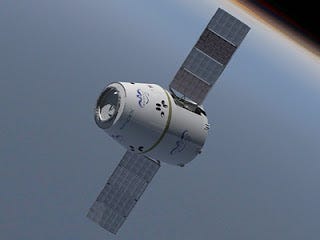First man on the moon lacks vision

Popular culture has given the first man on the Moon, Neil Armstrong, revered status on this planet. No wonder his views have been given so much attention as he has done the rounds of politicians and press in the last few years. His testimony to Congress two years ago poured cold water on the idea that any company might be able to gain access to low-Earth orbit.
I am very concerned that the new plan, as I understand it, will prohibit us from having human access to low Earth orbit on our own rockets and spacecraft until the private aerospace industry is able to qualify their hardware under development as rated for human occupancy. I support the encouragement of the newcomers toward their goal of lower cost access to space. But having cut my teeth in rockets more than 50 years ago, I am not confident. The most experienced rocket engineers with whom I have spoken believe that will require many years and substantial investment to reach the necessary level of safety and reliability.
In fact, supported by the last man on the moon, Gene Cernan, they became the first and last words on what was supposed to be an awful gap in access to the space station. But the thing is, legends and heroes they may be, but that does not mean they know a damn about good space policy nor have a hold on that special something that everyone in the business wants to claim: \"vision\". With the news today that the first commercial space station has berthed with the International Space Station, we can finally lay to rest the idea that the commercial sector cannot \"do\" human spaceflight. It has always been palpable nonsense, and now the game is up.
Of course there will attempts to throw doubt on commercial enterprises in space, for example by casting doubt on its commitment to safety. But luckily the abysmal record of government-funded human spaceflight isn\'t going to be hard to beat. It is just like the invention of commercial air travel. It will be cheaper and safer than anything the government can do. No question about it.
So now that there is pressure on NASA to choose one commercial supplier for trips to the space station, can we please have some common sense prevail? NASA\'s attempt to grow the private sector suppliers for space station transit is a hugely successful strategy. It is doing its job. But the point is to foster competition, not provide another company with a monopoly. Choosing SpaceX now as the sole commercial supplier, even though it deserves to be chosen, in the long run will not serve the industry--and humanity--one little bit. Competition and free enterprise is supposed to be what makes America great. So let\'s have more of it, not less.



